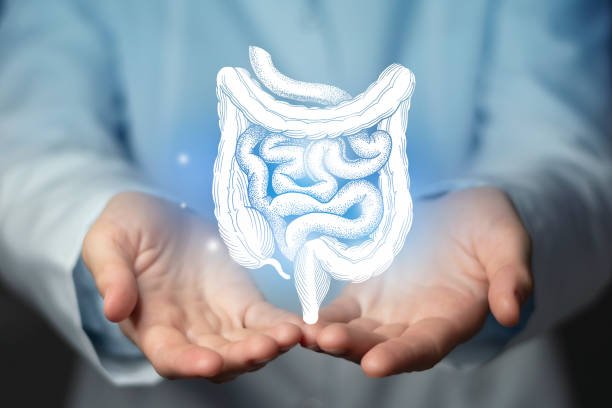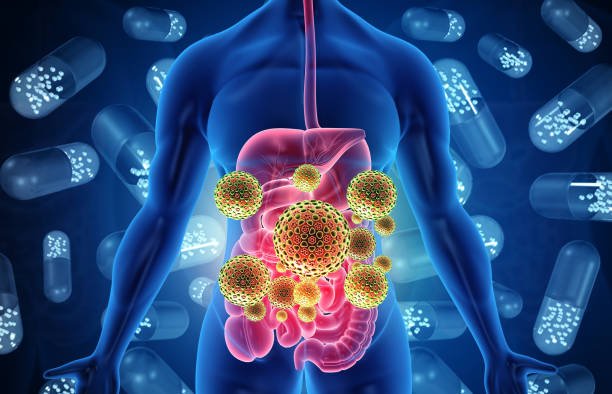
The Power of the Gut: Unlocking the Secrets to Optimal Health
In recent years, gut health has emerged as a cornerstone of overall well-being, with a growing body of research highlighting the intricate connections between the gut, the brain, and the immune system. At the heart of this system lies the gut microbiome—a vast and diverse community of microorganisms that play a critical role in human health. Understanding the functions and importance of the gut microbiome, as well as the gut-brain connection, is key to unlocking a healthier, more balanced life.
The Gut Microbiome: The Hidden Ecosystem Within
The gut microbiome consists of trillions of bacteria, viruses, fungi, and other microorganisms residing in the digestive tract. This complex ecosystem is unique to each individual, influenced by genetics, diet, environment, and lifestyle. The gut microbiome is not just a passive inhabitant; it actively participates in various physiological processes that are vital to our health.

The gut microbiome is a complex community of microorganisms that live in the digestive tracts of humans and other animals. These microorganisms include bacteria, archaea, viruses (including bacteriophages), fungi, and protozoa. The composition of the gut microbiome is highly diverse and can vary significantly between individuals. Here are the main types of microbiomes found in the gut:
1. Bacterial Microbiome
Firmicutes: One of the most abundant phyla in the gut. Members include Lactobacillus, Clostridium, Enterococcus, and Ruminococcus. They play a role in energy absorption, fermentation of carbohydrates, and production of short-chain fatty acids (SCFAs).
Bacteroidetes: Another dominant phylum, including Bacteroides and Prevotella. These bacteria are involved in the breakdown of complex carbohydrates and the production of SCFAs.
Actinobacteria: Includes Bifidobacterium, which is important for the metabolism of carbohydrates and has probiotic properties.
Proteobacteria: A less abundant phylum in healthy individuals but can become dominant in cases of dysbiosis. Includes Escherichia, Shigella, and Salmonella.
Verrucomicrobia: Includes Akkermansia, which is associated with mucin degradation and maintaining gut barrier integrity.
Fusobacteria: In smaller amounts, but can be associated with certain diseases when overrepresented.
2. Archaea
Methanogens: Methanobrevibacter smithii is the most common archaeon in the human gut. These archaea play a role in the digestion of complex polysaccharides by producing methane as a byproduct.

3. Fungal Microbiome (Mycobiome)
Candida: Candida albicans is a common yeast in the gut, which can overgrow and cause infections if not balanced by other microorganisms.
Saccharomyces: Saccharomyces cerevisiae (baker’s yeast) is also present and can have beneficial effects.
4. Viral Microbiome (Virome)
Bacteriophages: Viruses that infect bacteria, influencing the composition and function of the bacterial microbiome.
Eukaryotic Viruses: Includes viruses that can infect human cells, although their role in health and disease is less understood.
5. Protozoa
Blastocystis: A common protozoan in the gut, though its role is still debated, and it may be harmless in many people.
Entamoeba: Includes species like Entamoeba histolytica, which can cause disease, though many species are non-pathogenic.
6. Helminths (Worms)
Although less common in modern, developed countries due to improved hygiene and medical care, helminths (parasitic worms) like Ascaris and Trichuris can also be part of the gut microbiome in some populations. They can interact with the immune system and influence gut health.

Functions of the Gut Microbiome:
Digestion and Nutrient Absorption: The gut microbiome helps break down complex carbohydrates, fibers, and other indigestible components of food, enabling the absorption of essential nutrients. Certain bacteria produce short-chain fatty acids (SCFAs) like butyrate, which nourish the gut lining and regulate metabolism.
Immune System Regulation: A significant portion of the immune system resides in the gut. The microbiome acts as a barrier against pathogens, modulates immune responses, and helps maintain a balanced immune system. It trains the immune cells to differentiate between harmful invaders and benign substances, reducing the risk of allergies and autoimmune diseases.
Metabolic Health: The gut microbiome influences metabolic processes, including energy balance, fat storage, and glucose metabolism. Dysbiosis, an imbalance in the gut microbiome, is linked to metabolic disorders such as obesity, type 2 diabetes, and cardiovascular disease.
Synthesis of Vitamins and Hormones: Certain gut bacteria synthesize essential vitamins like B12, K, and folate. The microbiome also plays a role in producing and modulating hormones, such as serotonin, which influences mood and digestive function.
The Gut-Brain Axis: A Two-Way Street

The gut and brain are intimately connected through a bidirectional communication network known as the gut-brain axis. This connection involves the central nervous system (CNS), the enteric nervous system (ENS), the immune system, and the gut microbiome. The gut is often referred to as the “second brain” because it contains over 100 million nerve cells that regulate digestive processes independently of the brain.
Roles of the Gut-Brain Axis:
- Mood and Mental Health: The gut microbiome influences the production of neurotransmitters like serotonin and dopamine, which regulate mood, anxiety, and stress levels. Dysbiosis in the gut can lead to mental health issues such as depression, anxiety, and even cognitive decline.
- Stress Response: The gut-brain axis plays a role in the body’s response to stress. Chronic stress can alter the gut microbiome, leading to gastrointestinal issues like irritable bowel syndrome (IBS) and inflammatory bowel disease (IBD). Conversely, a healthy gut can help buffer the effects of stress on the body.
- Cognitive Function: Emerging research suggests that the gut microbiome may influence cognitive functions such as memory, learning, and decision-making. This connection underscores the importance of gut health in maintaining optimal brain function.
- Appetite and Weight Regulation: The gut-brain axis also regulates appetite and energy balance. Signals from the gut microbiome can influence hunger hormones like ghrelin and leptin, affecting food intake and weight management.

10 Tips to Maintain a Healthy Gut
Maintaining gut health is essential for overall well-being. Here are ten practical tips to help you support and nurture your gut microbiome:
- Eat a Diverse and Balanced Diet: Include a variety of fruits, vegetables, whole grains, legumes, nuts, and seeds in your diet. A diverse diet provides different types of fiber and nutrients that support a healthy and diverse gut microbiome.
- Include Probiotic-Rich Foods: Probiotics are beneficial bacteria that support gut health. Incorporate fermented foods like yogurt, kefir, sauerkraut, kimchi, and miso into your diet to introduce these helpful microbes.
- Increase Prebiotic Intake: Prebiotics are non-digestible fibers that feed the beneficial bacteria in your gut. Foods like garlic, onions, leeks, asparagus, bananas, and oats are rich in prebiotics.

- Stay Hydrated: Drinking plenty of water is crucial for maintaining a healthy digestive system. Proper hydration helps in the production of mucus lining the gut, aiding in smooth digestion and nutrient absorption.
- Limit Processed Foods and Sugars: Processed foods, artificial sweeteners, and high-sugar diets can disrupt the gut microbiome, promoting the growth of harmful bacteria. Focus on whole, natural foods to maintain a balanced gut flora.
- Manage Stress: Chronic stress negatively impacts gut health by altering the gut microbiome and weakening the gut barrier. Practice stress-management techniques such as meditation, deep breathing, yoga, and regular exercise.
- Get Enough Sleep: Quality sleep is essential for gut health, as the gut microbiome follows a circadian rhythm. Aim for 7-8 hours of uninterrupted sleep per night to support a healthy gut-brain connection.
- Exercise Regularly: Physical activity promotes a healthy gut microbiome by increasing the diversity of beneficial bacteria. Engage in regular, moderate exercise like walking, cycling, or swimming to enhance gut health.
- Avoid Unnecessary Antibiotics: While antibiotics are sometimes necessary, overuse can disrupt the gut microbiome by killing both harmful and beneficial bacteria. Only take antibiotics when prescribed and follow your doctor’s instructions.
- Consider Herbal Supplements: Ayurvedic herbs like Triphala, ginger, and licorice can support digestion and gut health. Consult with an Ayurvedic practitioner before adding any supplements to your routine.
connect with us if have any concern related to your health
heal your body and gut with natural and Ayurveda way
contact for more info at amrutvarshaayurved@gmail.com
follow us on Instagram @drlokeshpatankar

